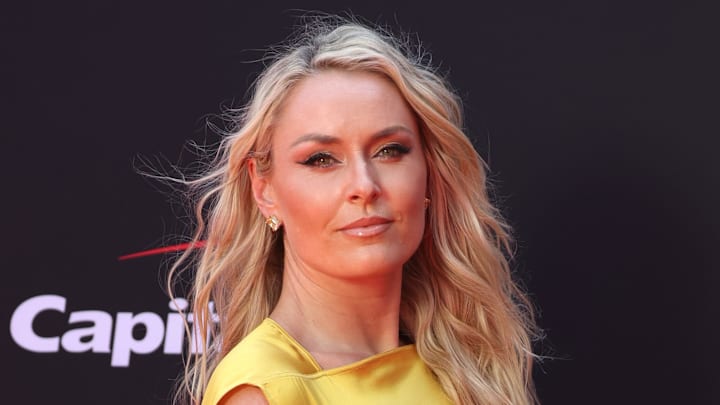Lindsey Vonn Opens Up About Mental Health Struggles Among Athletes, Makes the Case for Greater Resources

As a former professional athlete, who spent years contending with the hardships that life on the road entails, Lindsey Vonn is ready and willing to open up the conversation about mental health among athletes.
In honor of World Mental Health Day, the 39-year-old sat down with global sports organization Laureus and reflected on her own experience—and how it has informed her approach to mental health advocacy. Her overarching message was simple: the open dialogue around mental health in the sporting world in recent years is a positive change, but resources are still somewhat lacking.
That sort of openness in the sporting world is a relatively new phenomenon. Pushed by the likes of Vonn, tennis player Naomi Osaka and gymnast Simone Biles, among others, the mental health conversation is finally becoming somewhat of a priority among leaders across the sports landscape. But that wasn’t always the case. “Michael Phelps and myself, we were talking about it for many years, [and] many people saw that as weakness,” Vonn explained.
But she felt just as compelled to share then (when there was greater stigma around the topic) as she does now. “I’ve dealt with mental health issues since I was 18, dealing with depression and isolation,” she said. As a professional athlete, Vonn spent much of her time on the road, away from family and friends. She was “surrounded by people,” but felt “completely alone.”
That is the one of the hardest parts of finding success as an athlete, Vonn revealed—it comes with risks to your mental health. For that reason, the current dialogue around mental health in sports is of the utmost importance. “I’m happy that we’re talking about because it is a challenge,” she remarked. “I hope that athletes get more resources to really address certain issues that they have.”
The former alpine skier isn’t simply concerned about maximizing results on the slopes, field or court, either. She wants “to make sure that [athletes] can move forward not just in sports, but in life in a healthy way.”
Messages like Vonn’s—which call attention to the need for greater mental health resources and dialogue for athletes—are vital en route to achieving just that. As a professional athlete, Vonn experienced the difficulties firsthand (and is willing to speak to them, too). Her testimony—much like Osaka’s and Biles’s—will be the means of effecting positive change in the sports landscape and very likely beyond it, as well.

Martha Zaytoun is a writer on the Lifestyle and Trending News team for SI Swimsuit. Before joining SI Swimsuit in 2023, she worked on the editorial board of the University of Notre Dame’s student magazine and on the editorial team at Chapel Hill, Durham and Chatham Magazines in North Carolina. When not working, Zaytoun loves to watercolor and oil paint, run and water ski. She is a graduate of the University of Notre Dame and a huge Fighting Irish fan.